
My last chukar hunt was in the Yakima Canyon of Washington State when I was 75. On that trip, I finally had to admit that bad knees, peripheral neuropathy and diminishing lung capacity on slippery steep slopes and loose basalt were a certain recipe for an eventual debilitating fall. I only shot one bird that day, a beautiful mature male that I decided on the spot to have mounted. Sadly, I left it overnight in a cooler that my dog nosed open, and he reduced "the last chukar" to a few feathers.
My favorite place to hunt chukars was always in Wawawai Canyon, a rugged piece of the vast Snake River breaks in southeastern Washington State. The name Wawawai, means talk-talk or council grounds in the Nez Perce and Palouse tongues. I had hunted chukars in Idaho and Oregon, too, but Wawawai Canyon was my "home turf," a two-hour drive from my residence in Spokane. With slick cheat grass and scabrock-covered slopes reaching from the Snake River to the sky, Wawawai Canyon was an intimidating but beautiful place. Mostly it was steep, but narrow benches of relatively flat ground dotted with sumac and balsamroot would sometimes entice me to abandon my painful uphill trudge and seek easier going along the side of the mountain. Invariably, these benches caused me to either backtrack or foolishly venture on. I then had to compromise life and limb by climbing hand over hand up near vertical walls of basalt - hard to do while toting a shotgun, and a good way to lose your dog.
This story is from the Summer 2024 edition of The Upland Almanac.
Start your 7-day Magzter GOLD free trial to access thousands of curated premium stories, and 9,000+ magazines and newspapers.
Already a subscriber ? Sign In
This story is from the Summer 2024 edition of The Upland Almanac.
Start your 7-day Magzter GOLD free trial to access thousands of curated premium stories, and 9,000+ magazines and newspapers.
Already a subscriber? Sign In
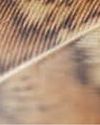
Tail feathers - STANDARDS AND PRACTICES
\"An armed society is a polite society,\" the NRA says in one of its dicta, cribbed from Robert A. Heinlein, a 20th-century American science fiction writer.
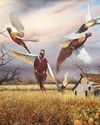
Day's End - IN PRAISE OF FENCEROWS
Driving north along the Hudson River, I gazed at a pastoral autumn scene: sere fields of faded yellow harvested corn, stubbly and broken amongst the clods of black earth, almost smooth from my vantage point. Spiky brown veins of wild growth marked barriers between plots. Occasionally, the gray bones of a mature oak rose among the brown shrubs to stand over the yellow fields. A sentry, keeping silent watch as white frost crystals slowly melted into invisibility.
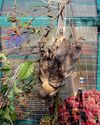
That Time of Year Again
Without doubt. The most idyllic form of hunting in Ohio is seeking the woodcock. - Merrill Gilfallan, Moods of the Ohio Moons: An Outdoorsman's Almanac (1991)
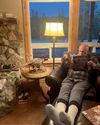
I Don't Wanna'!
I'm an old hand at being retired, though - have been practicing for 25 years.
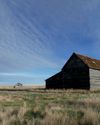
Hunting the Huns: Alberta's Big Sky Country
The prairies of southern Alberta are vast, beautiful and full of prime bird habitat. Crop fields are interspersed with abandoned farms, rolling hills are intersected by coulees and creek beds, and Hungarian partridge and sharptailed grouse occupy some of the best and most picturesque habitat on the continent.
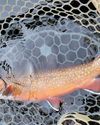
Side Dish - End of Season
Sporting trips are not only about sport, as many other experiences are discovered alongside. And my trip to Lakewood Camps in Maine was certainly just that.
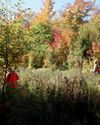
AN EXTENDED STAY
There is no reason to leave Michigan in the fall unless the opportunity of a cast and blast adventure at a historic sporting lodge in Maine comes calling.
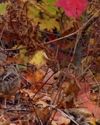
KEEP IT HANDY
If you think shooting a ruffed grouse on the wing with a shotgun is tough, try shooting one in flight with a still camera.
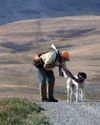
A Longtime Love Affair
It's possible to hunt your favorite birds in a lot of different places, I suppose, but I don't do that.
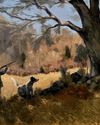
Profile of an Artist: Harley Bartlett
Harley Bartlett was born in 1959 near Pittsburg, Pennsylvania. However, having lived in Rhode Island for most of his life he considers himself a Rhode Islander.